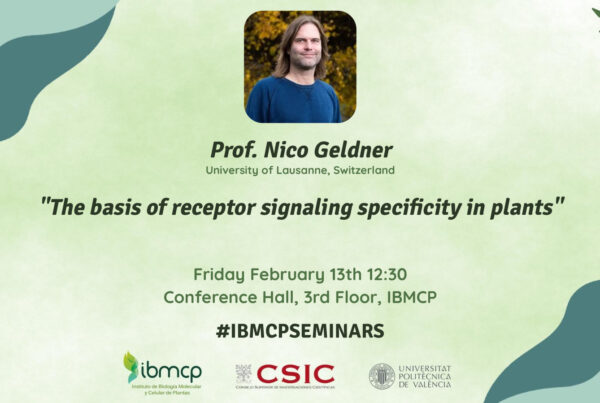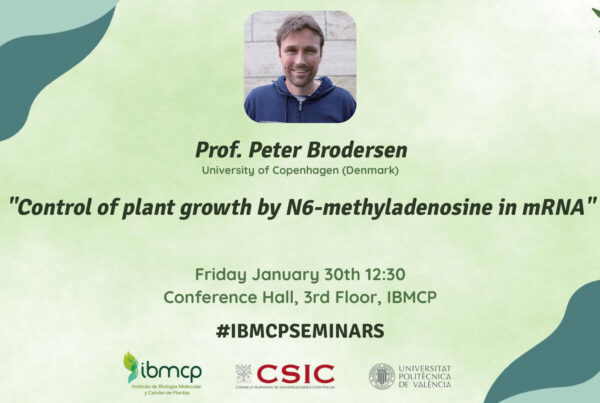“Trimethylamine N-oxide is a new plant molecule that promotes abiotic stress tolerance” The sessile lifestyle of plants severely conditions their response to environmental changes, which frequently derivates in stressful situations. Thus, plants have evolved a panoply of strongly regulated adaptive processes to face these changes and survive. Rafael Catalá´s career has been focused in understanding the molecular mechanisms controlling these responses. During his PhD at INIA (Madrid), he focused on the characterization of the cold acclimation process in plants. Afterwards, he obtained a long term EMBO fellowship to work with Prof. Chua at Rockefeller University (US). There, he characterized the role of the SUMO pathway in plant tolerance to drought. Back in Spain, he joined Prof Salinas´ lab at CIB Margarita Salas (Madrid), where he currently holds a position as Investigador Distinguido. Rafael research line aimes to identify new signalling pathways governing plant tolerance to abiotic stress. Whithin this framework, he has uncover a key role of the spliceosome in shaping the adequate response to different stresses, and he has also reported the identification of a new plant osmolyte, TMAO, which increases plant tolerance to abiotic stress. In this seminar, Rafael will describe the work that led to the discovery of TMAO in plants, and he will explain what they have learned about the function of TMAO in plant reponse to environmental cues.
Seminar Rafael Catalá (Cib, Madrid) 24th September 12:30








